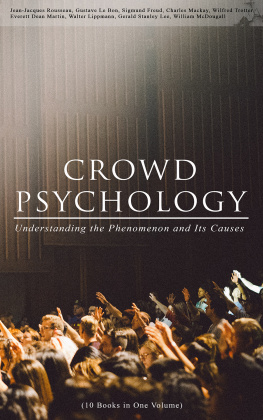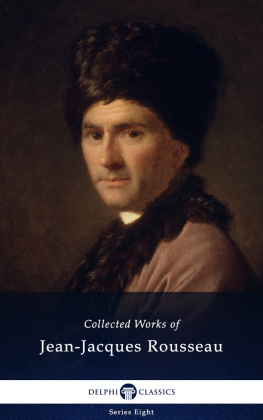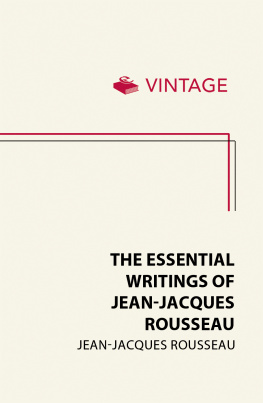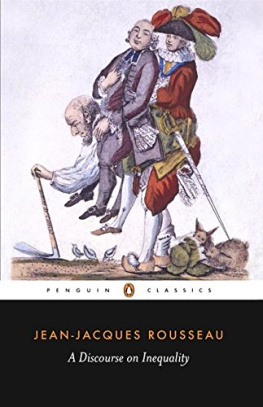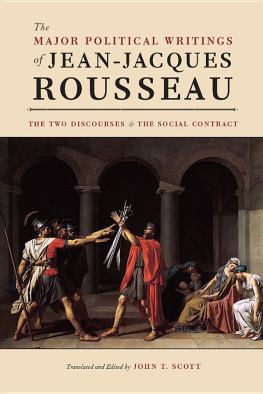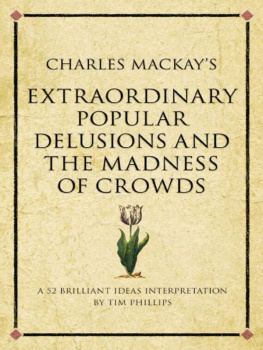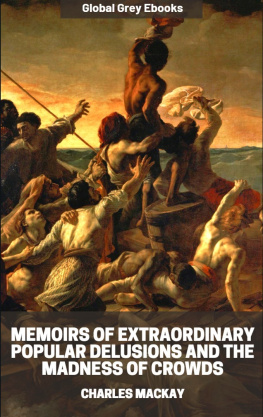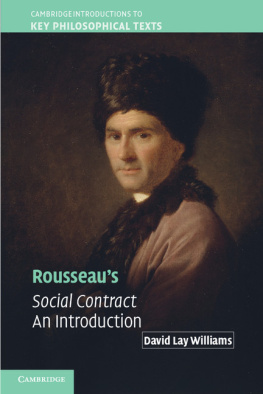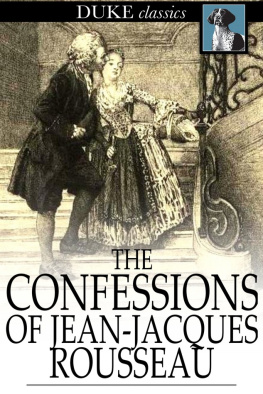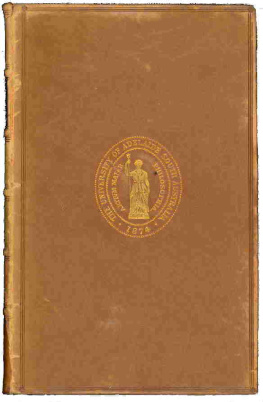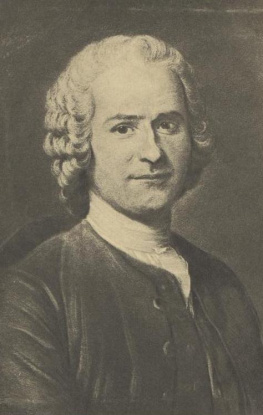Introduction
For the study of the great writers and thinkers of the past, historical imagination is the first necessity. Without mentally referring to the environment in which they lived, we cannot hope to penetrate below the inessential and temporary to the absolute and permanent value of their thought. Theory, no less than action, is subject to these necessities; the form in which men cast their speculations, no less than the ways in which they behave, are the result of the habits of thought and action which they find around them. Great men make, indeed, individual contributions to the knowledge of their times; but they can never transcend the age in which they live. The questions they try to answer will always be those their contemporaries are asking; their statement of fundamental problems will always be relative to the traditional statements that have been handed down to them. When they are stating what is most startlingly new, they will be most likely to put it in an old-fashioned form, and to use the inadequate ideas and formulae of tradition to express the deeper truths towards which they are feeling their way. They will be most the children of their age, when they are rising most above it.
Rousseau has suffered as much as any one from critics without a sense of history. He has been cried up and cried down by democrats and oppressors with an equal lack of understanding and imagination. His name, a hundred and fifty years after the publication of the Social Contract, is still a controversial watchword and a party cry. He is accepted as one of the greatest writers France has produced; but even now men are inclined, as political bias prompts them, to accept or reject his political doctrines as a whole, without sifting them or attempting to understand and discriminate. He is still revered or hated as the author who, above all others, inspired the French Revolution.
At the present day, his works possess a double significance. They are important historically, alike as giving us an insight into the mind of the eighteenth century, and for the actual influence they have had on the course of events in Europe. Certainly no other writer of the time has exercised such an influence as his. He may fairly be called the parent of the romantic movement in art, letters and life; he affected profoundly the German romantics and Goethe himself; he set the fashion of a new introspection which has permeated nineteenth century literature; he began modern educational theory; and, above all, in political thought he represents the passage from a traditional theory rooted in the Middle Ages to the modern philosophy of the State. His influence on Kant's moral philosophy and on Hegel's philosophy of Right are two sides of the same fundamental contribution to modern thought. He is, in fact, the great forerunner of German and English Idealism.
It would not be possible, in the course of a short introduction, to deal both with the positive content of Rousseau's thought and with the actual influence he has had on practical affairs. The statesmen of the French Revolution, from Robespierre downwards, were throughout profoundly affected by the study of his works. Though they seem often to have misunderstood him, they had on the whole studied him with the attention he demands. In the nineteenth century, men continued to appeal to Rousseau, without, as a rule, knowing him well or penetrating deeply into his meaning. "The Social Contract," says M. Dreyfus-Brisac, "is the book of all books that is most talked of and least read." But with the great revival of interest in political philosophy there has come a desire for the better understanding of Rousseau's work. He is again being studied more as a thinker and less as an ally or an opponent; there is more eagerness to sift the true from the false, and to seek in the Social Contract the "principles of political right," rather than the great revolutionary's ipse dixit in favour of some view about circumstances which he could never have; contemplated.
The Social Contract, then, may be regarded either as a document of the French Revolution, or as one of the greatest books dealing with political philosophy. It is in the second capacity, as a work of permanent value containing truth, that it finds a place among the world's great books. It is in that capacity also that it will be treated in this introduction. Taking it in this aspect, we have no less need of historical insight than if we came to it as historians pure and simple. To understandits value we must grasp its limitations; when the questions it answers seem unnaturally put, we must not conclude that they are meaningless; we must see if the answer still holds when the question is put in a more up-to-date form.
First, then, we must always remember that Rousseau is writing in the eighteenth century, and for the most part in France. Neither the French monarchy nor the Genevese aristocracy loved outspoken criticism, and Rousseau had always to be very careful what he said. This may seem a curious statement to make about a man who suffered continual persecution on account of his subversive doctrines; but, although Rousseau was one of the most daring writers of his time, he was forced continually to moderate his language and, as a rule, to confine himself to generalisation instead of attacking particular abuses. Rousseau's theory has often been decried as too abstract and metaphysical. This is in many ways its great strength; but where it is excessively so, the accident of time is to blame. In the eighteenth century it was, broadly speaking, safe to generalise and unsafe to particularise. Scepticism and discontent were the prevailing temper of the intellectual classes, and a short-sighted despotism held that, as long as they were confined to these, they would do little harm. Subversive doctrines were only regarded as dangerous when they were so put as to appeal to the masses; philosophy was regarded as impotent. The intellectuals of the eighteenth century therefore generalised to their hearts' content, and as a rule suffered little for their lse-majest: Voltaire is the typical example of such generalisation. The spirit of the age favoured such methods, and it was therefore natural for Rousseau to pursue them. But his general remarks had such a way of bearing very obvious particular applications, and were so obviously inspired by a particular attitude towards the government of his day, that even philosophy became in his hands unsafe, and he was attacked for what men read between the lines of his works. It is owing to this faculty of giving his generalisations content and actuality that Rousseau has become the father of modern political philosophy. He uses the method of his time only to transcend it; out of the abstract and general he creates the concrete and universal.
Secondly, we must not forget that Rousseau's theories are to be studied in a wider historical environment. If he is the first of modern political theorists, he is also the last of a long line of Renaissance theorists, who in turn inherit and transform the concepts of medival thought. So many critics have spent so much wasted time in proving that Rousseau was not original only because they began by identifying originality with isolation: they studied first the Social Contract by itself, out of relation to earlier works, and then, having discovered that these earlier works resembled it, decided that everything it had to say was borrowed. Had they begun their study in a truly historical spirit, they would have seen that Rousseau's importance lies just in the new use he makes of old ideas, in the transition he makes from old to new in the general conception of politics. No mere innovator could have exercised such an influence or hit on so much truth. Theory makes no great leaps; it proceeds to new concepts by the adjustment and renovation of old ones. Just as theological writers on politics, from Hooker to Bossuet, make use of Biblical terminology and ideas; just as more modern writers, from Hegel to Herbert Spencer, make use of the concept of evolution, Rousseau uses the ideas and terms of the Social Contract theory. We should feel, throughout his work, his struggle to free himself from what is lifeless and outworn in that theory, while he develops out of it fruitful conceptions that go beyond its scope. A too rigid literalism in the interpretation of Rousseau's thought may easily reduce it to the possession of a merely "historical interest": if we approach it in a truly historical spirit, we shall be able to appreciate at once its temporary and its lasting value, to see how it served his contemporaries, and at the same time to disentangle from it what may be serviceable to us and for all time.

